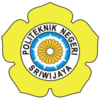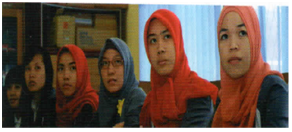Introduction
Accounting Department was established in September 1986. It is aimed to produce graduates at middle level management. Accounting Department has got B level of BAN PT accreditation. Accounting Department management system is based on Quality Management System (QMS) ISO 9001: 2008.
Vision
Toward a leading, qualified, and adaptable vocational department in the field of accounting and will able to compete in global challenges in 2020.
Mission
- Producing graduates who have qualified accounting knowledge, high discipline, good morale, competitive and have an entrepreneurial spiritandenvironmental concept that fit industrial development;
- Building and developing a structural capacity, internal infrastructure and external network nationally and internationally; and
- Developing qualified, professional, and open accounting department; performing continuous evaluation; and ready to face global competition.
Purposes
- To prepare competent, well-disciplined, and professional students in the field of accounting;
- To prepare accounting students to have intellectual, emotional, spiritual ability and able to compete globally; as well as
- To foster the entrepreneurial spirit with environmental concept since college.
Targets
- Produce graduates with a minimum GPA of 3.25 and English language proficiency (TOEIC) of at least 450, as well as communication skills, teamwork, creativity, independence, integrity and noble character that respons the need challenges of service users nationally and internationally;
- Increase the numberandquality offacultyresearchandcommunity service activitiesthatare constructive forthe benefit of societyas well asresearch publicationsinaccredited journalsnationallyand/orinternationally;
- Increasestudent involvement inresearch and community serviceactivitiesas well as student activities domestically and internationally;
- Empoweralumni networkforthe benefitof program development;
- Increase the intensity offacultyinvolvementin activitiesrelated to thedevelopmentof knowledgeheldwithinand outside Indonesia;
- Increase capacities of unitswithin studyprogram, andincrease thesatisfactionof students,faculty, employees andother parties;
- Improvecommunicationandcollaborationwithother partiesfor the purpose ofinternshipsfor students.
Strategies to Achieve Targets
1.
- Optimize student centerapproach learning process to 85% of the 19 total meetings within each semester;
- Create aconducive academic atmosphereandimprove the facilitiesin the classrooms, laboratories, andlibraries;
- Take advantage on the development of information technologyto supportlearningeffectiveness;
- Carry outperiodicreview ofthe curriculumso that it can produce graduateswhohave thecompetenciesrelevant tothe needs ofthe market
- Sendfaculty to join researchmethodologytrainingandcommunity service, andencouragefacultytosend grantresearch proposaland community service;
- Facilitate the publication of faculty research results in professional journalsandotheraccreditedjournals.
3.
- Encouragefacultytoengagestudents in researchand community service;
- Seekinformationandengagestudents ina variety ofstudent activities(seminars, competitionsinthe field of science/sport/art, and forums/student organization).
- Assignalumnito be spoke personsin student activitiesandbuild sustainable socialnetworks(sociallink).
5.
- Involvefacultyinscientific developmentactivities(training /workshop);
- Encouragefacultyto participate inadvance studies.
- Create an efficientbureaucracyandcommunicationopportunitieswithstudentsso as to achieveimproved
- Establish communicationwithother partiestoopen upopportunities forcooperation.
Graduates’ Profile
- Technical Accountant;
- Financial Staff;
- Accounting Supervisor;
- Junior Auditor;
- Accounting Information System Assistant Analyst;
- Credit Analyst;
- Tax Staff Accounting Department;
- Tax Supervisor Acc. Department;
- Banking Staff; and
- Entrepreneur.
Learning Outcomes
- Master basics ofaccounting;
- Able tocarry out workand formulatetheproceduralproblem solvingskillsin accordance withaccountingexpertise, and be able tomanage team work;
- Able toselect formal and non-formal methodsin accounting areas;
- Able to communicateandpreparea written reportwithin their work scope;
- Ableto act and behave base on existing socialnorms at work and in daily life;
- Able to adjust thedevelopment of science, technologyand/orart.
Graduates’ Competences
Core Competences
- Able to carry out bookkeeping task and prepare financial statements of small, medium and large-size companies both manually and computer-assisted;
- Able to calculate and make non-financial report needed by management in decision-making;
- Able to perform Accounting Supervision;
- Able to assist senior auditors in auditing financial statements;
- Capable of designing and supporting the main accounting system of small and medium-size enterprises;
- Able to implement the Internal Control within the company;
- Able to analyze corporate financial statements; and
- Able to calculate, predict and report, and pay taxes based on current tax laws.
Supporting Competences
- Able to act and behave ethically (according to the code of professional ethics) in applying professional accounting skills in the community;
- Able to work in team, and be discipline in carrying out professional responsibilities;
- Capable of carrying out the responsibilities carefully; and
- Capable of being entrepreneurs and manage business.
Other Competences
- Able to operate and make a simple accounting computer program, and
- Ableto communicate in Englishat work.
Training Service
In addition to best equip graduates with the competencies, Accounting Diploma Program offers a variety of training that can be tailored to the needs, with a relatively affordable cost. The offered training consists of:
▪ Training of Financial Statements Preparation
▪ Taxation Training:
Integrated Brevet A and B
▪ Audit Training
▪ Cash Flow Training
▪ Managing Business and Entrepreneurship Training
▪ Computer Accounting Training
Production and Consultation Services
Consultation service includes:
▪ Consultation in the Preparation of Financial Statements
▪ Tax Consultation
▪ Completion of term and Annual Consolidated tax return
▪ Consultation of Cash Flow Preparation
▪ Entrepreneurship and Business Management Consultancy
▪ Consultancy of Computer base Accounting Data Processing
Facilities
Polsri Accounting Department has three-storey college building that is equipped with:
- Multimedia and airconditioned study rooms
- Laboratory:
Computer Laboratory
Simulation and Multimedia Laboratory
Financial Accounting Laboratory
English Language Laboratory
- Hall
- Hotspot Area
- ICT-based Academic Information System (Sisfo Polsri)
- e-library (digital library)
- e-journal
- Sport facilities


